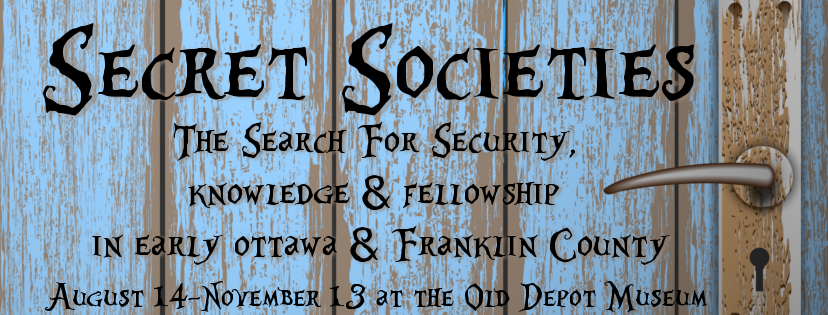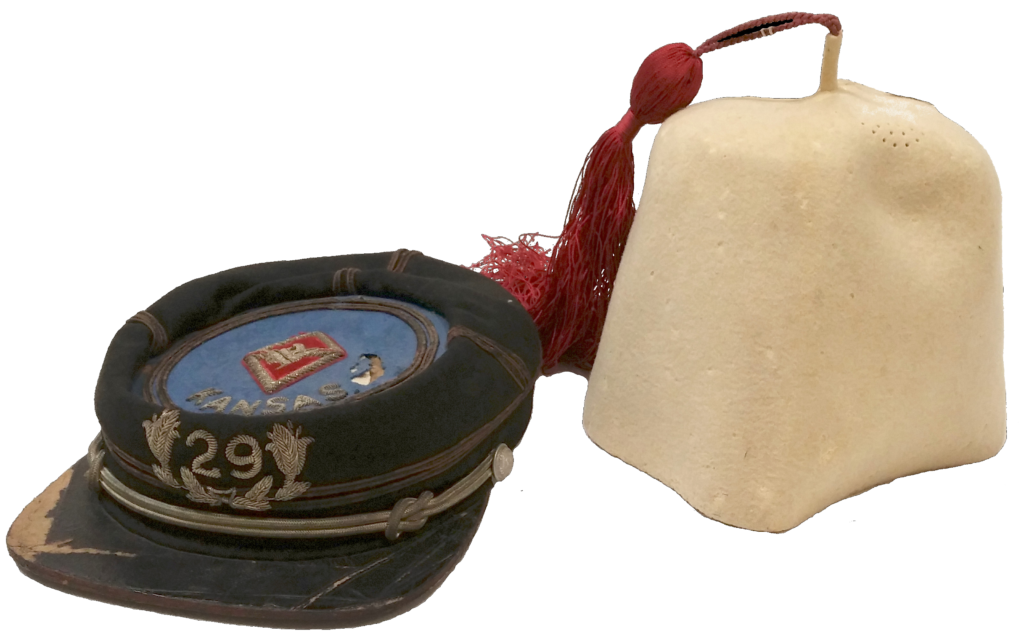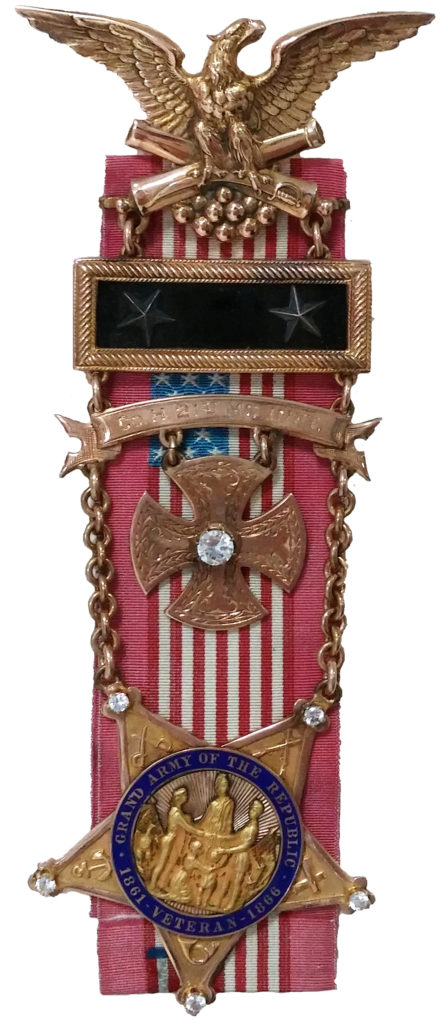
In the late 19th century, a Franklin Countian looking to build connections with others and bring security to his family might turn to one of the many secret societies promising both. The Old Depot Museum’s August-November 2016 exhibit, Secret Societies: The Search for Security, Knowledge & Fellowship in Ottawa & Franklin County, explores the history, impact, and, in some cases, demise of the organizations that once played a prominent role in Franklin County.
In the late 1800s, families understood the perils of daily living. An illness or an accident could be deadly, leaving widows and widowers without the means to bury their spouses. Commercial life insurance policies for individuals and social security did not yet exist. Instead, people turned to secret societies like the International Order of Odd Fellows, the Modern Woodman of America, the Royal Neighbors, and the Ancient Order of United Workmen, which offered burial benefits.

Other organizations were focused on specific causes. One of the earliest known organizations in Franklin County was the Danites, a secret society committed to the abolitionist cause. James Lane himself initiated members while traveling through Ohio City in 1857. The Turnverein, also known as the Turners, came to Ottawa with the early German-speaking settlers. In addition to their focus on health and athletics, they helped new immigrants acclimate to life in the United States and later became involved in social movements such as worker rights.

The Grand Army of the Republic served Civil War veterans. The sign for Post No. 18 is still painted over their former meeting rooms on the third floor of the Franklin County Courthouse. At one time, every town in the county had their own post.
Although these secret societies varied greatly in purpose, the core of their existence was based in fellowship, security, and the search for knowledge. Local chapters regularly hosted presenters on a variety of topics, giving members who might have minimal formal education an opportunity to learn.
The National Grange of the Order of Patrons of Husbandry served Franklin County’s rural residents. The Grange served as a social organization, a clearing house for agricultural information, and a lobbying group for its members. Unlike many organizations, the Grange not only welcomed women into its numbers, but required that at least a third of any Grange’s membership be female.
Many secret societies touted friendship and brotherhood, but only to an exclusive few. Societies like the Knights of Pythias, Improved Order of Red Men, and the Freemasons did not welcome people of color in their early years, and many only included women in their auxiliary groups. As a result, some of these organizations inspired the creation of societies that catered to African Americans. Ottawa was home to the Prince Hall Masons Corinthian Lodge No. 12 (an all-black lodge) as well as the American/York Rite Masons Lodge No. 18, which served the white citizens of Franklin County.
No group was more exclusive or more divisive than the Ku Klux Klan, which gained a foothold in Kansas in the early 1920s. This revived KKK was not only anti-black, but also anti-immigrant, anti-Catholic, and anti-Semitic. Shortly after arriving to Kansas, the KKK was recruiting in Franklin County and holding meetings—which it publicized in local papers—throughout the county and even on Main Street in Ottawa.
In addition to narrating the local histories of these organizations, the Old Depot Museum’s exhibit showcases many of the elaborate medals, pins, hats, stoles, canes, and other props–including axes once twirled by Modern Woodmen of America members—that played an important role in the ceremony and pageantry of these secret societies.
